June Focus Areas
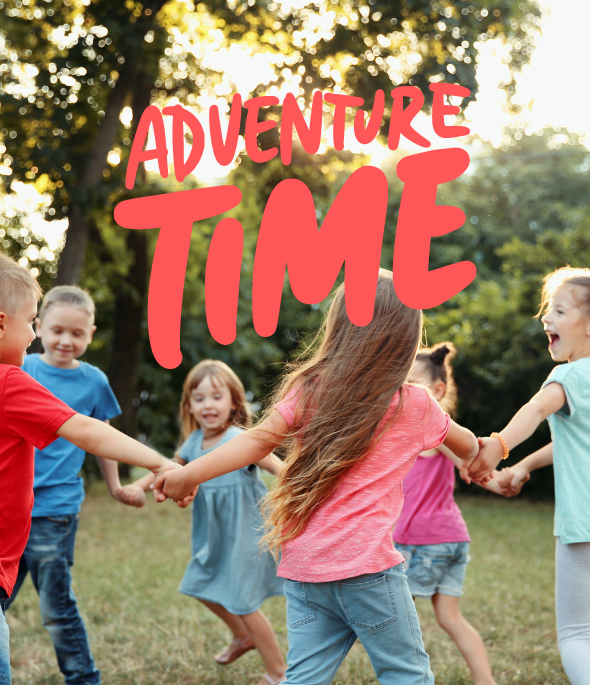
-Summer of Adventure- When you spend time with your children without technology it helps them with
Read More...
-Summer of Adventure- When you spend time with your children without technology it helps them with social-emotional and behavioral development, play can help children learn to cope with stress and develop emotional intelligence, resiliency skills, builds connections, they are more confident, and keeps their creative minds going instead of relying on electronics. Try sharing activities like preparing food, reading, playing word games, going to the park, and more. Engagement helps children feel connected in all areas of their lives, including home and school. Let's get back to enjoying each other's company and making memories. Want a fun and memorable summer? Here are a few ideas to engage with your children to make summer enjoyable and easy. - Go for a morning or evening walk around the neighborhood
- Ride bikes
- Water balloon and Water Day- water balloon yoyo
- Paint rocks and do a scavenger hunt
- Game night
- Roast marshmallows in the backyard or make a solar pizza box roaster with tin foil
- Explore nature and have a picnic
- Plant a garden or flowers
- Visit a local park or playground
- Ice and water sensory bin
- Ice Dig- in a bowl freeze small toys (waterproof) and they can chip away the ice getting the toys out
- Lemonade popsicles
- Bird watching at the Lower Klamath National Wildlife Refuge or Klamath Lake
June Challenge of doing something kind: - Pick up trash near your house or at a park
- Do a chore for your parents, family, or friends
- Make a special craft for someone
- Start a neighborhood game with other kids
- Make someone’s day with your words or actions
- Write a kindness letter or note
Read Less
Aprils Focus Areas
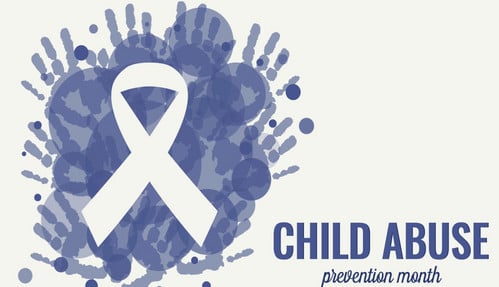
Child Abuse Awareness and Prevention in April As spring comes in full swing we are set to kick off
Read More...
Child Abuse Awareness and Prevention in April As spring comes in full swing we are set to kick off spring activities. Summer is in the air and this month specifically is a good time to sit down and do a few reminders in the realm of child abuse. This is a topic that is important to be grounded in as we move out of slower months of the year and become active. Child Abuse awareness key points - This month many organizations will have Pinwheels displays for education and unity in terms of CA awareness.
- Start the age appropriate conversations on how appropriate touch takes place.
- Be a teacher and model how discipline looks, and how to address issues with love.
- Know the meaning of what is classified abuse and neglect
- Teach your children their rights.
Child abuse prevention - Key ways to aid in prevention is to be involved in your community stakeholders
- Take or teach parenting classes.
- Manage stress levels and discipline when calm and regulated.
- Take time to educate others on appropriate interactions, and who one can tell in a time of crisis
- Report suspected neglect or abuse
Read Less
February's focus areas

February brings Valentine’s Day, which we all know as the holiday about love! But
Read More...
February brings Valentine’s Day, which we all know as the holiday about love! But healthy relationships aren’t just for adults. We can start teaching our children as young as elementary school what it means to have healthy friendships. The first step for parents is helping your children understand the difference between healthy and unhealthy relationships. 1.Point out that a good friendship (which is one of our first relationships!) includes someone who: - You can be yourself around.
- You can be honest with and is honest with you
- Respects you and never threatens you
- You are able to communicate with, even if you disagree
2. An unhealthy friendship might include: - Someone who pushes you on the playground (with the intent to hurt you) or takes/destroys your things
- Someone who calls you names or makes you feel bad in front of other friends or kids
- Someone who gets angry at you and you don’t know why
Remember the best way for your children to learn is by modeling positive and healthy relationships! Give your children to the confidence to know they never have to stay in an unhealthy relationship or friendship. Resource: Kids Help Phone
Read Less
December's Focus Areas
It’s December, and we all know what that means. Everybody is getting ready for the holidays
Read More...
It’s December, and we all know what that means. Everybody is getting ready for the holidays and the kids are bouncing off the walls! The excitement that kids feel this time of year can actually become overstimulating and lead to difficulty regulating emotions and possible outbursts. This can be confusing and frustrating to children (and the adults around them!). We look forward to the holidays all year long. Aren’t we supposed to be happy? In truth, this season can bring a whole host of difficult emotions, including anxiety, stress, worry and even sadness. Here are a few recommendations from experts on how parents can help their children manage emotions during holiday breaks: - Provide a Routine: Kids manage their emotions better when they have a regular, predictable routine, making sure that getting enough sleep is part of that routine. This doesn’t mean that parents need to be drill sergeants with a whistle around their neck! It just means that if certain parts of the day (bedtime, meals, a chore time, maybe a reading time) are put into the day, with the fun and relaxation filled into the spaces in-between, everybody’s break will be more relaxing in the end. Your student will also adjust back to school in January much more successfully.
- Make and Share Plans: The holidays are full of things that children look forward to. Whether it is getting the Christmas tree, going shopping, visiting relatives, friends visiting or making cookies, kids feel less stressed if they know the who, what, when, where, etc… of holiday events. Remember that young children are still developing their concept of time, so a visual calendar is best. These plans also provide social opportunities for your kids, which they’ll need, especially if you live in a more secluded area, as well as an opportunity to break up the vacation so that boredom doesn’t set in. By the way, 2024 calendars are on sale now at Dollar Tree.
- Model and/or Practice Emotional Coping: The holidays are a time that adults are stressed and excited as well. So, it’s the perfect time to model how you cope with emotions. Maybe you focus on planning and organization and have a color-coded to-do list. Seeing everything that needs to be done in one list, rather than wondering about it, is a great way to relieve anxiety for some people. Movement and exercise may be what works for others. We all need to have healthy coping mechanisms that we use to help us make it through our days. Use the holidays to show what works for you. Or, take the opportunity to connect with your child, by trying out coping strategies together. (See Image from the web site Strong4Life.)
- Slow Down and Connect: Most importantly, spending quality time with close family in and of itself is a great calming strategy for kids. Having a snowball fight, playing games and just laughing together are some of the best ways to relieve stress while creating lasting memories.
Important December Dates: No School December 18-29 for Winter break
Read Less
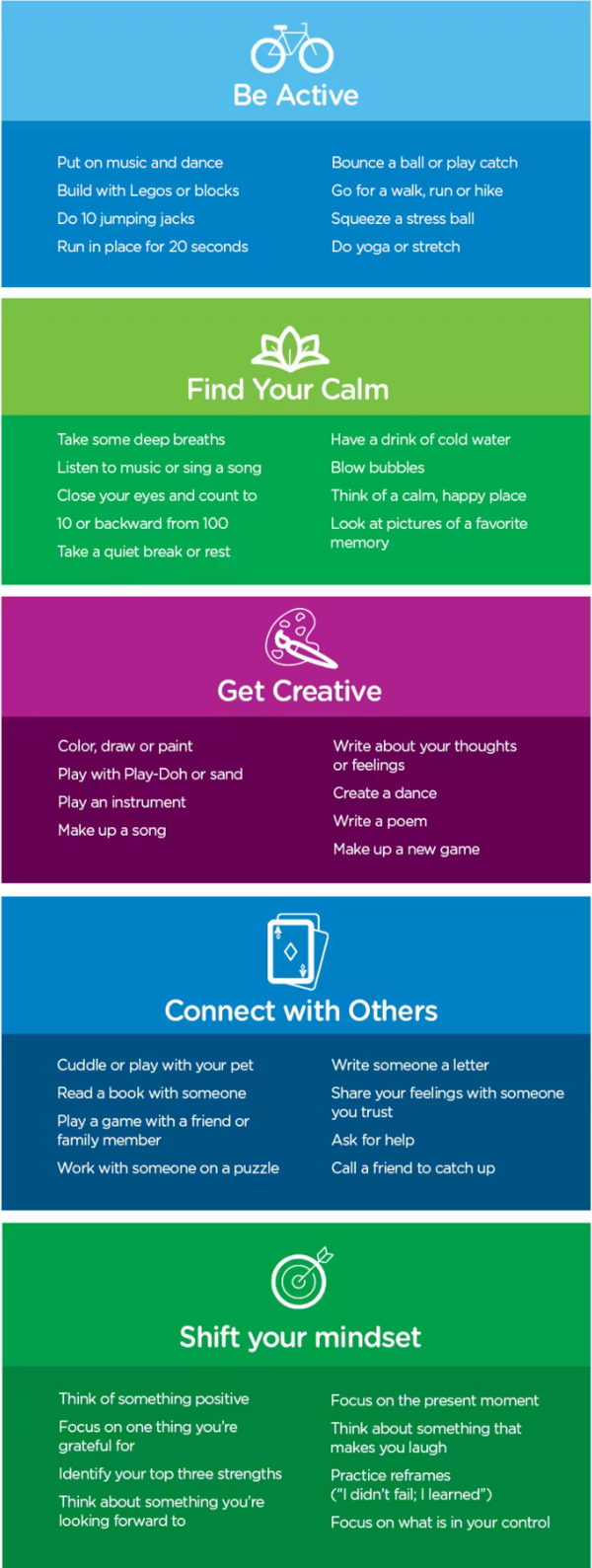
May's Focus Areas
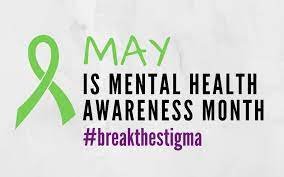
May is Mental Health Awareness Month. Mental health includes psychological, social and emotional
Read More...
May is Mental Health Awareness Month. Mental health includes psychological, social and emotional well-being. Mental health affects how you feel, think and act. Experts stress that now is the time to focus on healing, reaching out, and connecting in safe ways by acknowledging that it’s okay to not be okay. Our mental health plays a part in how we handle stress, relate to others and make choices. When you are mentally healthy, you are able to enjoy life and the people around you, keep good relationships, feel good about yourself and it helps you deal with stress. Mental stress can impact the immune system in many different ways and increase physical illness. This is a good time to pause, reflect and recognize a difficult truth. Nearly one in five Americans lives with a mental health condition, according to the According to the National Institute of Mental Health there are nearly one and five Americans that live with mental illness disorders. It is a good time to focus on healing, reaching out, and connecting in safe ways by acknowledging that it’s okay to not be okay. Activities that can help you stay mentally healthy: | My Body 
| My Mind 
| My Social Life 
| | When your physical health is feeling off, it might be hard to know where to start. It's important to take care of your body | When yourmental health is struggling, it can be really hard to feel in control. It's important to take the steps to relax your mind. | When you don't feel connected or heard, it's hard to remember that we don't have to do this alone. It's important to socialize with others or reach out for help. | When I'm feeling... | When I'm feeling... | When I'm feeling... | -
Tired -
Pain -
Exhausted -
Lifeless -
Hungry -
Lethargic | -
Sad -
Hopeless -
Panicked -
Frustrated -
Angry -
Numb | -
Isolated -
Lonely -
Disconnected -
Left out -
Anti-social -
Alone | Here's what I can do to take care of my body: | Here's what I can do to take care of my mind: | Here's what I can do to take care of myself socially: | -
Eat a snack -
Drink a big glass of water -
Exercise (walk, run, bike ride, stretch, yoga, dance, lift weights) -
Get up, take a shower, and get dressed -
Meditate -
Turn on some music and dance -
Go to bed early or take a quick nap -
Try a breathing excerise (Google Square breathing, 7/11 breathing, 4-7-8 breathing -
Call, text, or chat the Youthline | -
Listen to music -
Watch a movie -
Finish my homework or study -
Do something artistic like draw, paint, dance, write a song or sing -
Look in the mirror and remind myself: "I'm doing the best I can right now" -
Write in a journal -
Read a book -
Make a to-do list ( try adding small easy-to-do things) -
Lose the caffeine -
Clean and organize my space -
Take a break from social media -
Call, text, or chat the Youthline | -
Call or text a trusted friend or adult in my life -
Identify the people in my life who support me -
Volunteer for something I care about -
Connect with friends on social media -
Start a blog or a vlog -
Frind out what clubs my school has that I'd like to join -
Play with my pet or take my neighbor's do for a walk (Don't forget to ask first!) -
Go to the mall, a bookstore or a community center and people watch -
Call, text, or chat the Youthline | These disorders include: - Depression
- Anxiety
- Mood disorders, including bipolar
- Psychotic disorder
- Trauma
- Easting disorders
- Substance use
Some signs and symptoms may include: - Feeling sad or down
- Confused thinking or reduced ability to concentrate
- Excessive anxiety, worries or fears
- Extreme mood changes of highs and lows
- Social withdrawal, loss of interest, difficulty interacting
- Dramatic changes in eating
- Low energy, change in sleeping pattern
- Easily angered
- Suicidal thoughts
Resources: -
Klamath Basin Behavioral Health – 541-883-1030 -
Suicide & Crisis Lifeline – call or text 988 -
Crisis text line – Trevor Project (LGBTQ) text the word “HOME” to 741741 -
Oregon Youthline – 877-968-8491 or Text the words “TEEN2TEEN” to 839863 Important Dates in May: Friday May 5th- Grade Prep no school Sunday May 7th - Mental Health Youth awareness Monday May 29th- Memorial Day no school
Read Less
February's focus areas
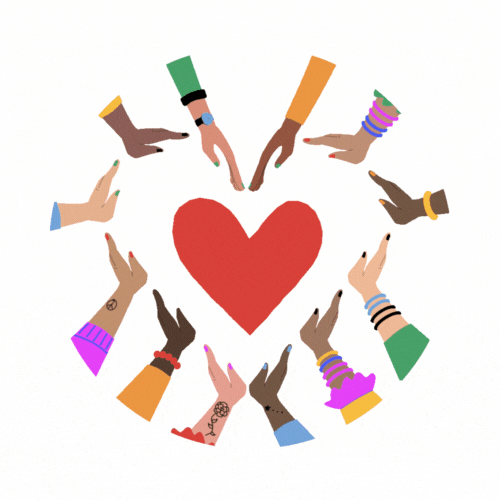
February brings Valentine’s Day, which we all know is the holiday about love! But healthy
Read More...
February brings Valentine’s Day, which we all know is the holiday about love! But healthy relationships aren’t just for adults. We can start teaching our children as young as elementary school the difference between healthy and unhealthy relationships and friendships. -
Point out that a good friendship (which is one of our first relationships!) includes someone who: - You can be yourself around
- You can be honest with and is honest with you
- Respects you and never threatens you
- You are able to communicate with, even if you disagree
-
An unhealthy friendship might include: - Someone who pushes you on the playground (with the intent to hurt you) or takes/destroys your things
- Someone who calls you names or makes you feel bad in front of other friends or kids
- Someone who gets angry at you and you don’t know why
Remember the best way for your children to learn is by modeling positive and healthy relationships! Give your children the confidence to know they never have to stay in an unhealthy relationship or friendship. Resource:Kids Help Phone Important February Dates: - No school 2/20 Presidents' Day
Read Less
January's Focus area
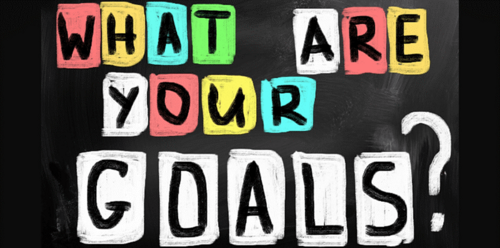
New Year’s resolutions aren’t just for adults! It’s the perfect time to start
Read More...
- New Year’s resolutions aren’t just for adults! It’s the perfect time to start goal setting for kids. Help your child kick off the New Year right with these easy tips.
- January is the perfect time for a fresh start. Have you discussed with your child what his goals are for the New Year? Allow them to set their own goals, so they can truly experience the satisfaction of seeing them through to the end.
- If your child is self-motivated, they are likely to have a vested interest in achieving their personal goals. Having individual goals to work towards brings purpose to the actions in our daily lives. Having a conversation with your child about what they would like to improve and accomplish can open doors to expand their horizons.
Here are some tips on discussing goal setting with your child and keeping up with goals all year long. 1. Keep the goals realistic, specific and measurable. It’s important to not overwhelm your child with too many goals. Help narrow them down to a couple and make sure they are realistic and measurable. We want our kids to learn the importance of following through on every goal. 2. Create a plan of action. After deciding on the goal, plan the necessary steps needed to achieve success. There is a big difference between wanting to achieve something and actually doing it. Parents play an important part in helping children get there. 3. Help your child stick with it. Have your child commit their goal to a family member, teacher or friend in order to develop accountability and stay on track. Check in periodically to see how their doing and if the plan to achieve the goal(s)needs to be adjusted. 4. Keep the goal in mind. Displaying a goal in a visible place like the wall in the kitchen can serve as a good reminder. Reflecting on how far your child has come and where they want to go next is an invaluable activity. Consistent encouragement will also go a long way. Setting goals with your child can be fun and exciting, a time for growth, and an opportunity for family bonding. Resource: 4 Simple Tips for Setting Goals
Read Less
December's Focus Areas

Happy December! Hard to believe it is already the last month of 2022. I hope this year has brought
Read More...
Happy December! Hard to believe it is already the last month of 2022. I hope this year has brought lots of fun and happy times. As we transition into the holidays, it can be lots of excitement, but also big changes for our kids. Between not being in school and having different holidays events happening, it can be very difficult for our kids to cope with the changes happening. There are a few tips you can use in order to make the transitions to break easier as well as ways to cope throughout the break: - Try to keep somewhat of a schedule. While this does not need to look the same as it does during a typical school week, having some sort of schedule will make everything easier.
- Let the kids know what events and/or plans are coming up. Kids like to know what to expect and having an idea of things that are coming up can help. Also, it gives them things to look forward to!
- On the topic on events and plans, let the kids help plan one or a few of the break activities. This will give them a sense of responsibility while also getting to incorporate things they enjoy.
- Have grace! Have grace for yourself and your kids. Breaks can be hard for everyone, but if they are approached with empathy and grace they can be some of the best times to make memories.
Look at your family to decide what will work best and make the breaks as much fun as they should be! Happy holidays! Important December Dates - No school 12/19 -12/31 Winter Break
Read Less
Novembers Focus: Gratitude and Thankfulness

The upcoming holidays are the perfect time to teach young children a very important life lesson
Read More...
The upcoming holidays are the perfect time to teach young children a very important life lesson about gratitude that will last well past the season. As children grow with gratitude, they become more understanding of the needs and feelings of others. So, how do we teach our children to be grateful? One way is to talk with them about being thankful. Not only for material things, but for acts of kindness from others, too. Here are some tips for teaching children gratitude: - Teach them to say thank you to the people who do things for them. That can be their server at a restaurant, a brother or sister who helps them pick up toys, or a friend who gives them a birthday gift.
- Tell your kids why you are grateful for them. Be specific in letting your children know they are special and loved. For example: ‘I appreciate the way you help your brother tie his shoes.’
- Talk about the things you are grateful for. This can be done in many ways, from a blessing before dinner to keeping a family gratitude journal.
- Support a charitable event or organization. Whether you are donating clothes or toys, participating in a food drive, or baking cookies for a new neighbor, talk to children about what those actions mean to those who receive the kindness.
- Be consistent. Like all skills, gratitude is not learned in one lesson.
This video "What Does it Mean to be Thankful?" will help children understand the meaning of gratitude. https://youtu.be/PcVQGoalfnk Your child’s first five years are a great opportunity to help them develop the skills they need to be successful later in life. Research shows that thankful people are usually more optimistic. They’re also less depressed and stressed. So, when we teach our children to appreciate what they have, and what others do for them, we are helping them become happier, healthier adults. Important November dates: - No school 11/11 Veteran's Day
- No school 11/21 Grade Prep
- No school 11/22-11/25 Thanksgiving Break
Read Less
|
|
|








